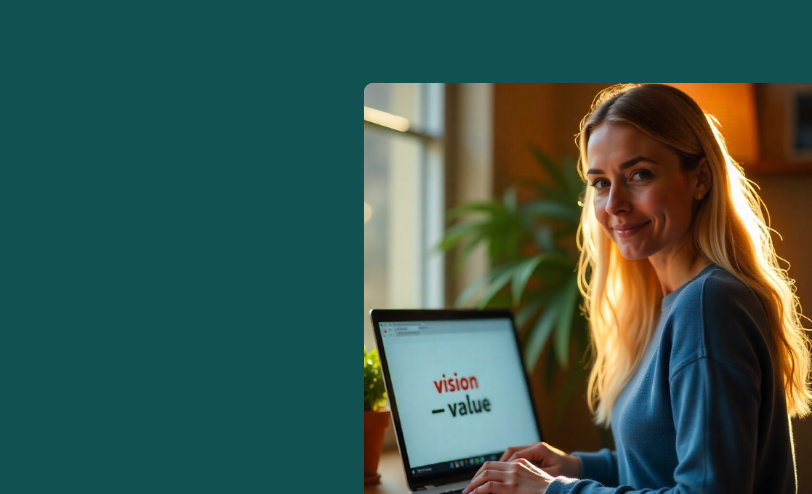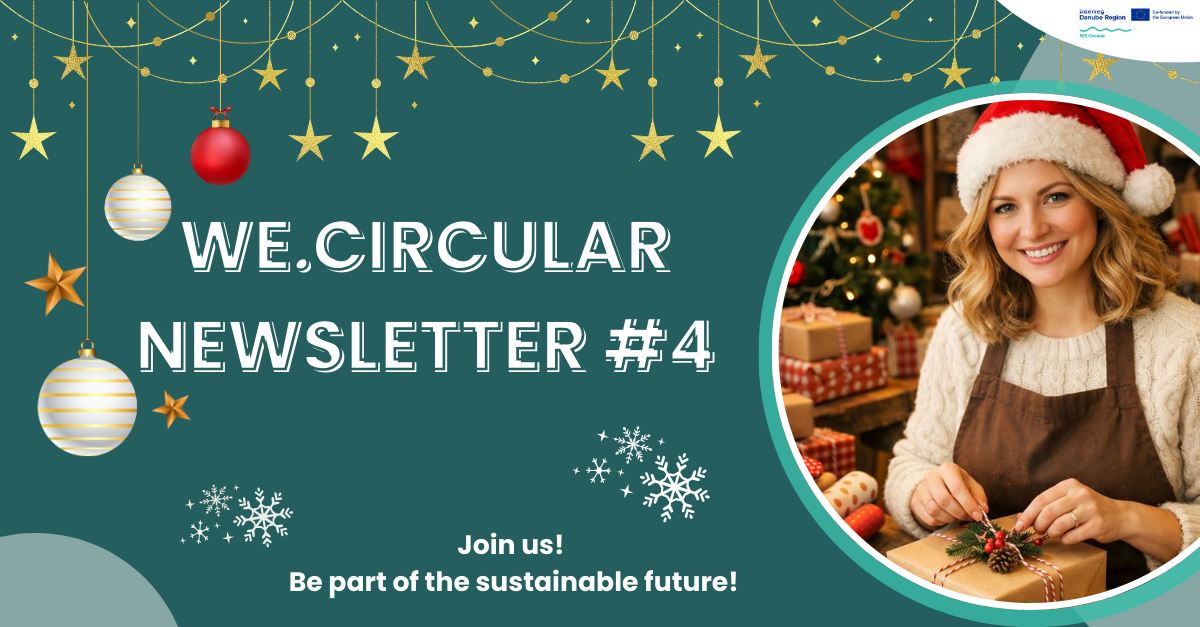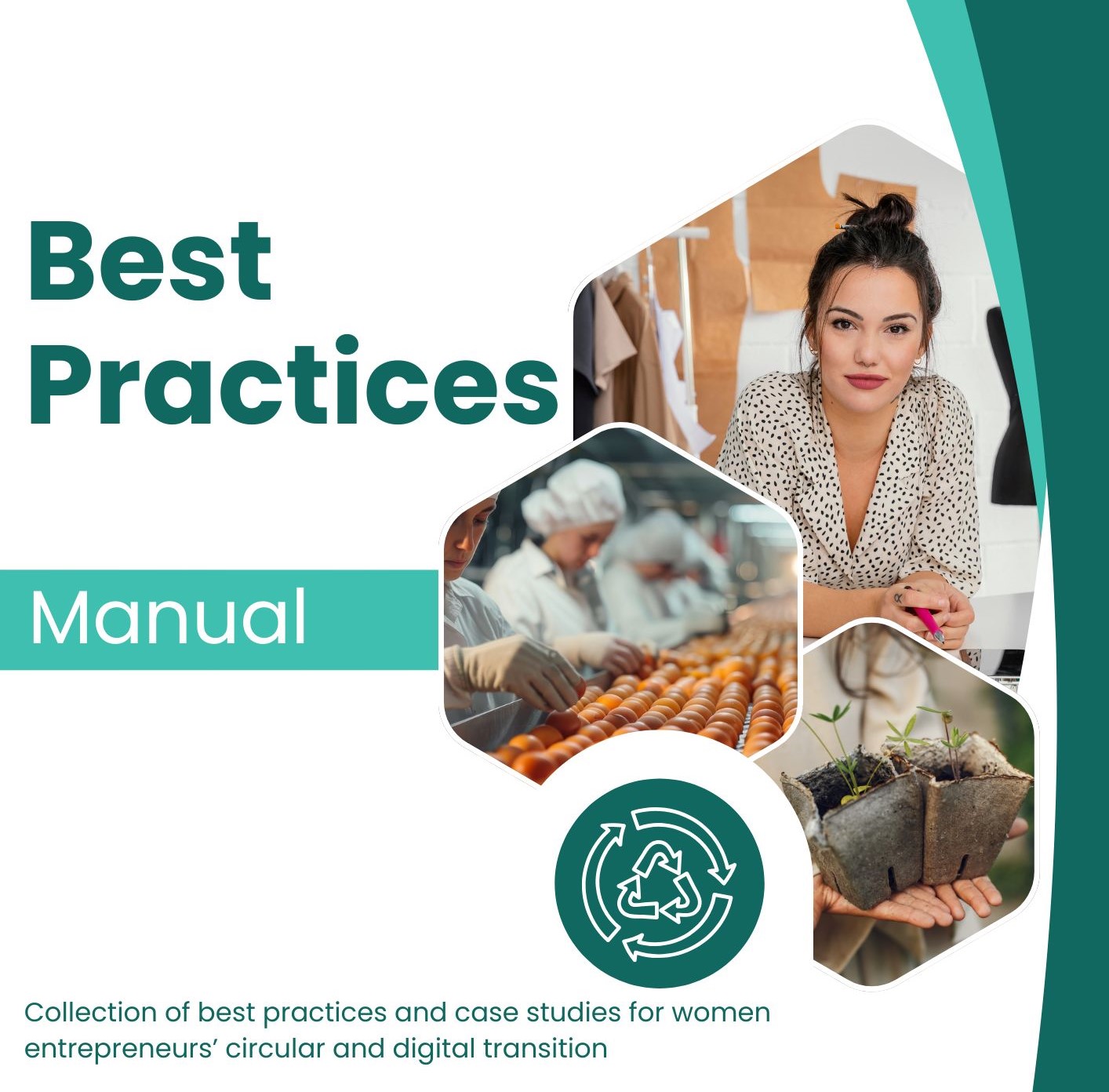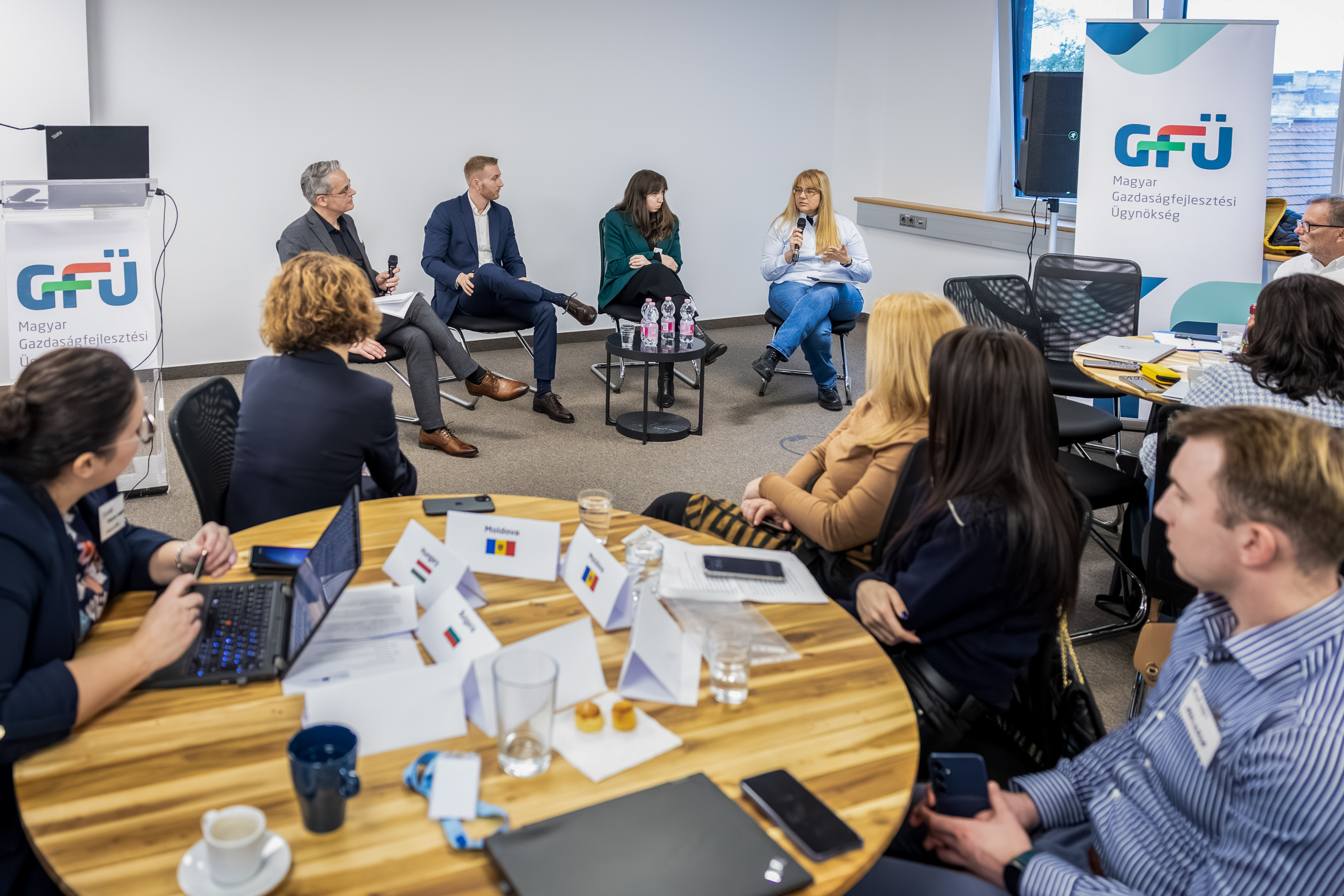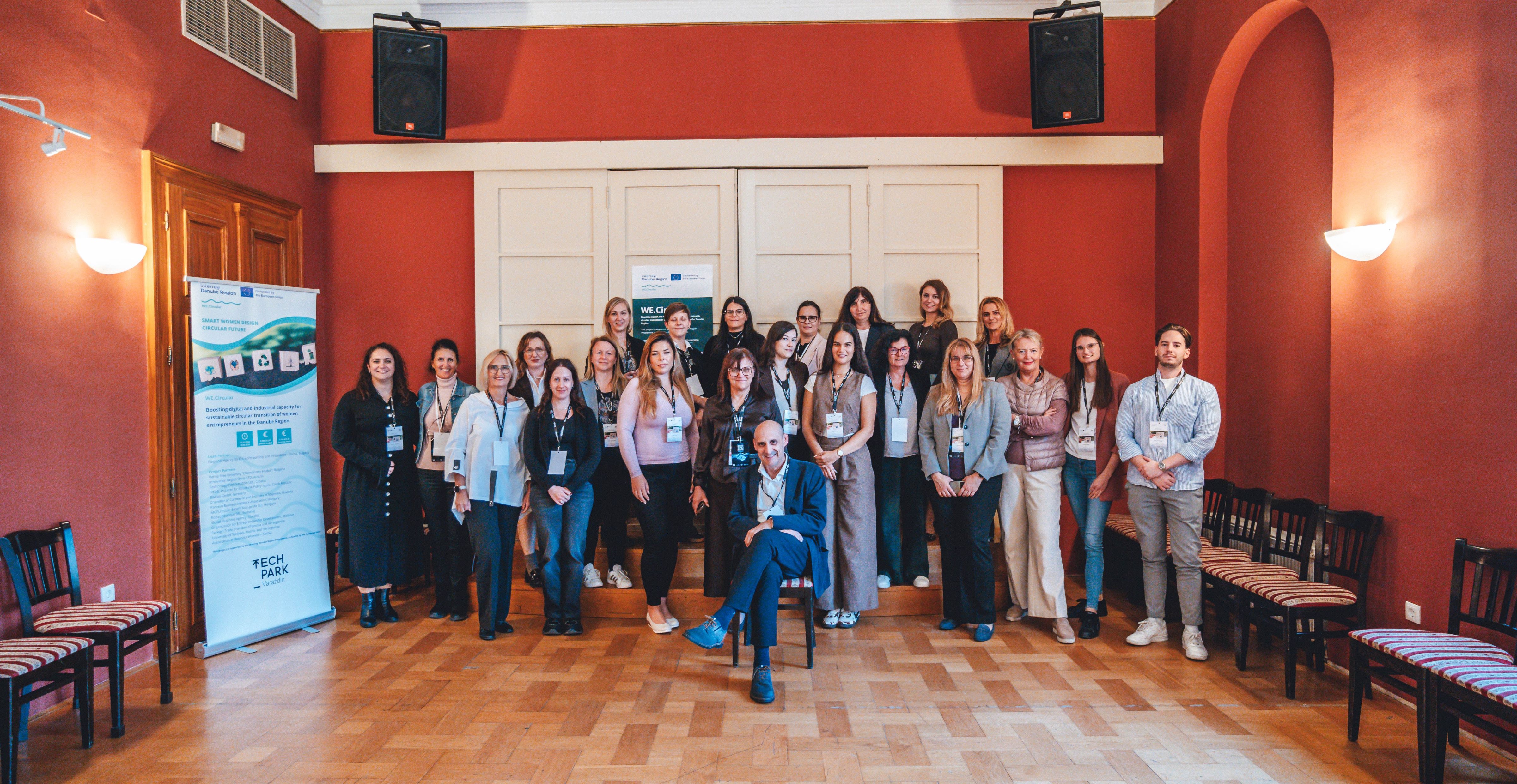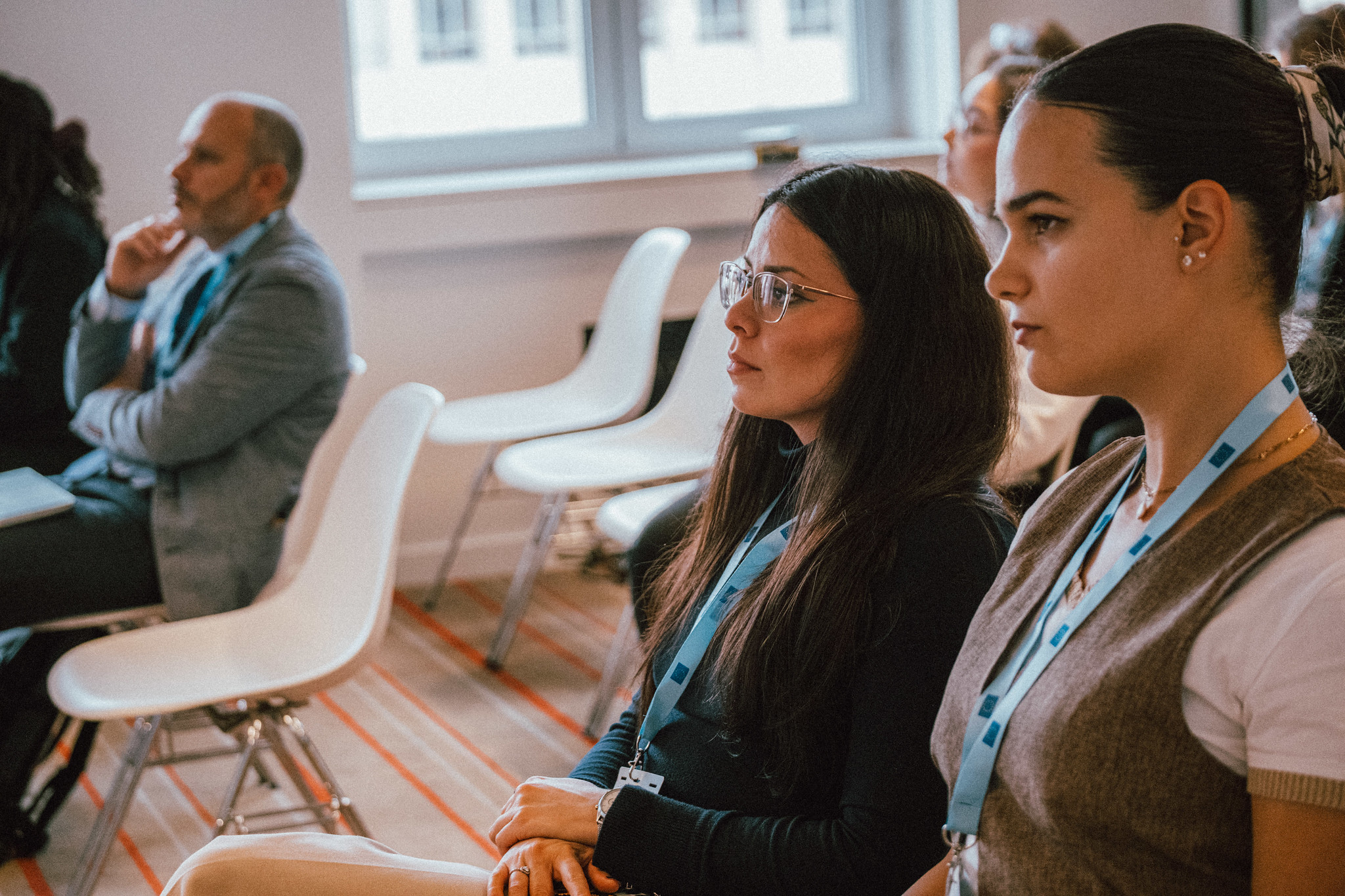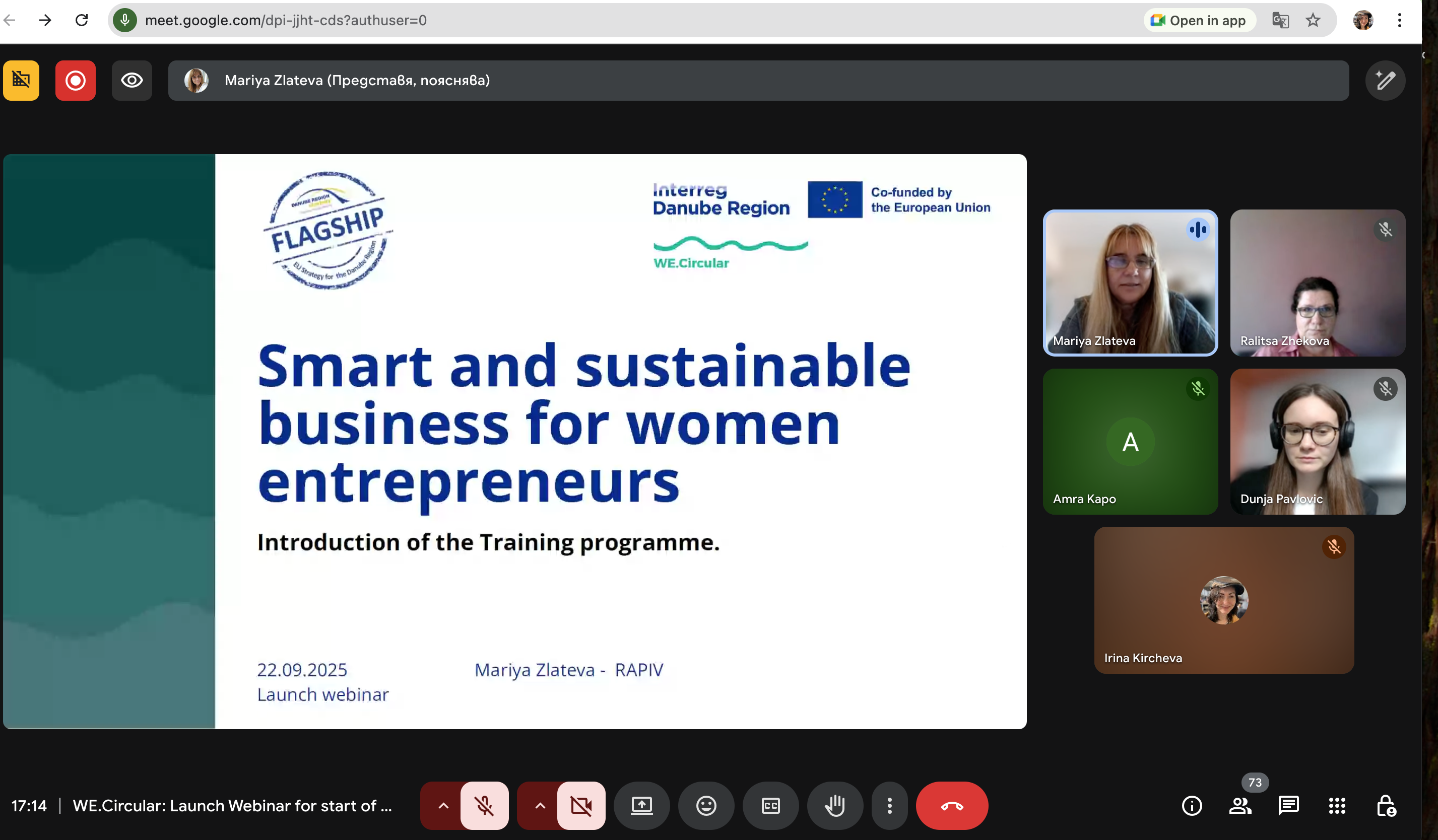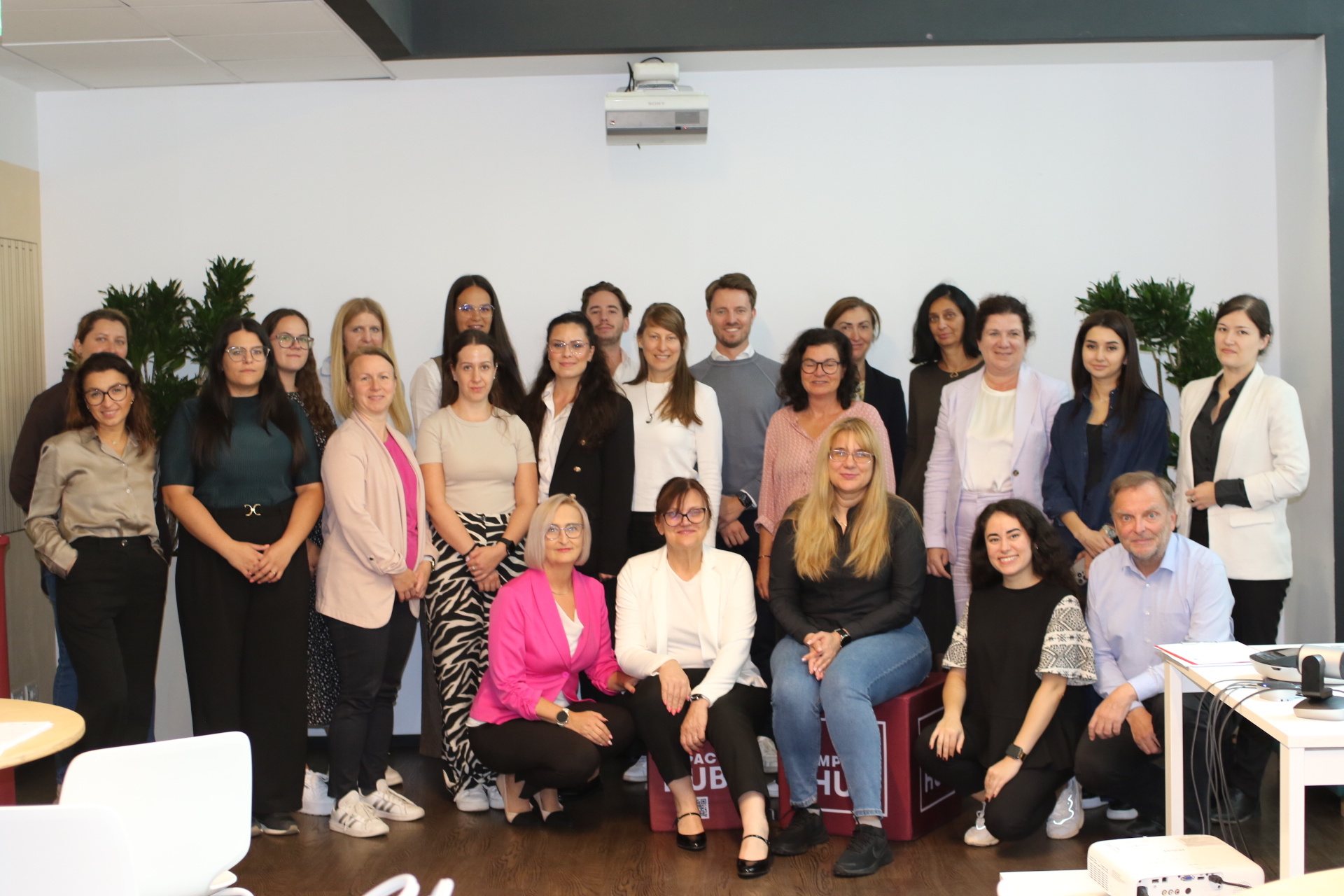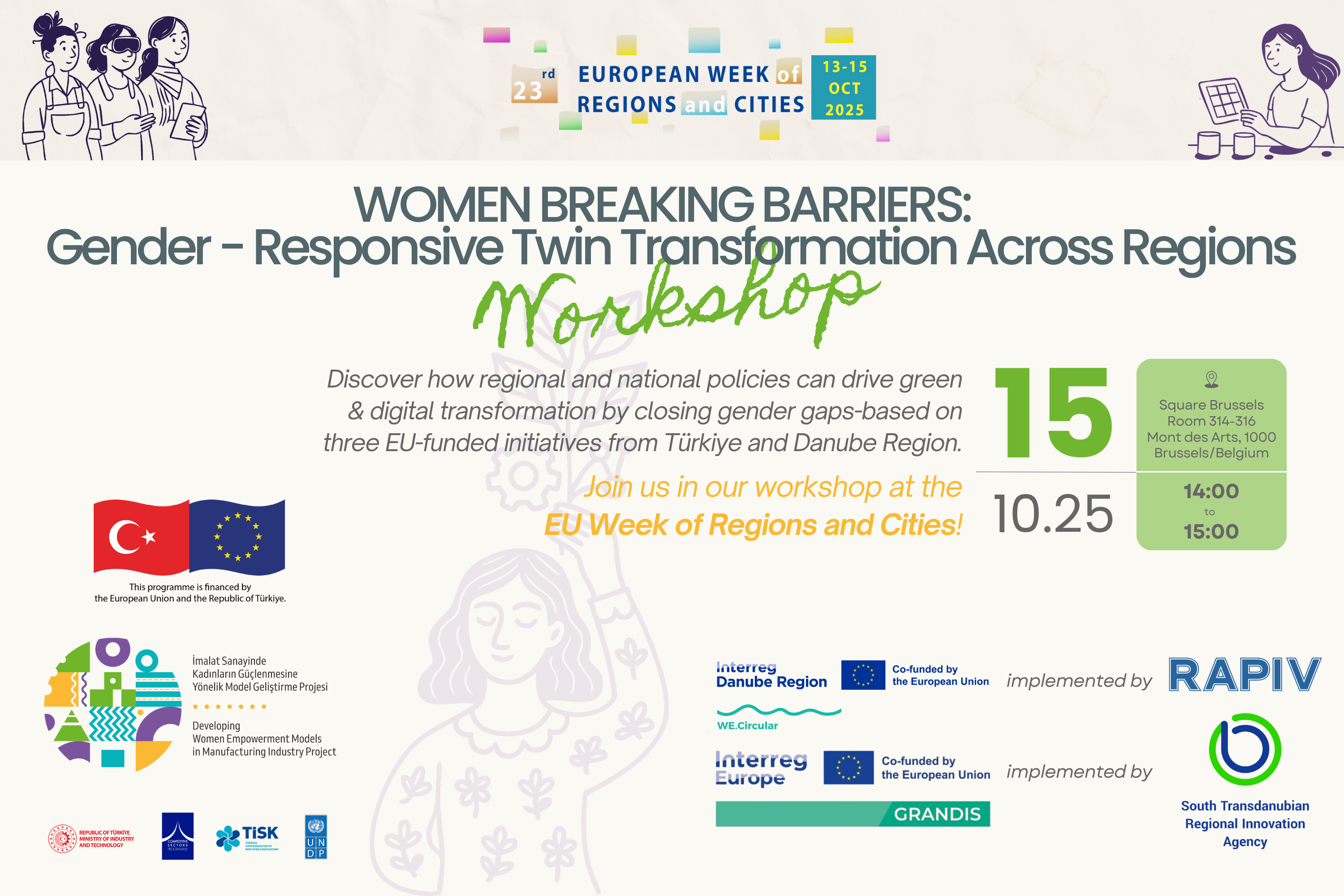
WE.Circular events mark key milestone in Prague
On June 5–6, 2025, Prague hosted a pivotal series of events under the WE.Circular project. Held at Hotel Amarilis and other local venues, the programme included a high-level Dissemination Event, an intensive Transnational Stakeholder Group Meeting (TSHM), an engaging Co-Design Workshop, and a hands-on site visit to a leading circular economy initiative. The events brought together project partners, business support organisations, policymakers, entrepreneurs, and circular economy practitioners from across Europe.
The Dissemination Event opened with a welcome from Prof. Martin Pělucha (IREAS) and a project overview by Mariya Zlateva (RAPIV), followed by a series of impactful presentations from regional and national actors.
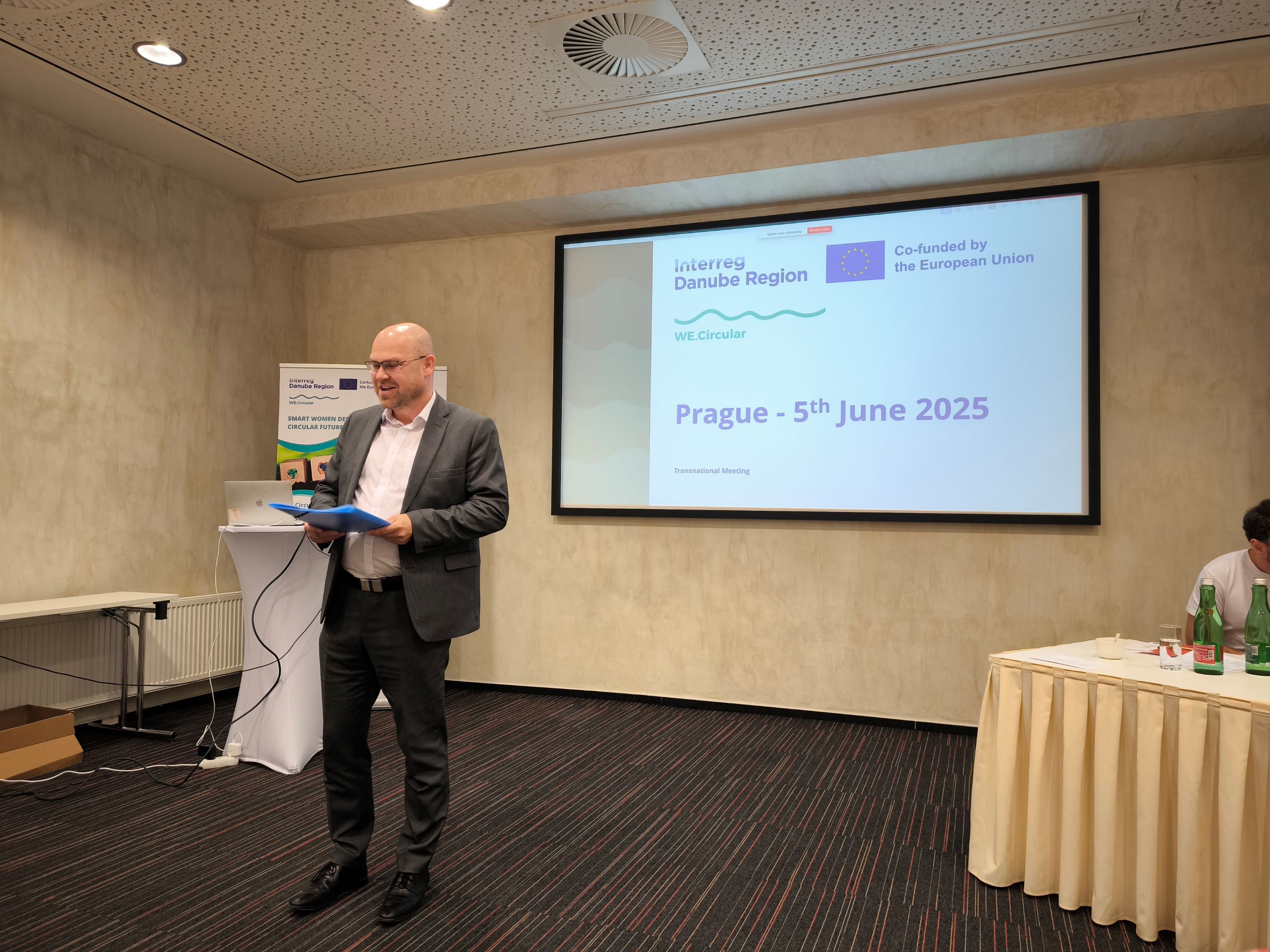
Among the speakers, Lenka Loučková (CzechInvest) showcased Czechia’s efforts to support innovation and sustainable enterprise. Jaroslava Šnejdarová (Wo-Mum), a finalist in the Women in Tech programme, presented her entrepreneurial journey and advocacy for women in the tech and startup ecosystem. Radka Murasová (INION) described initiatives supporting entrepreneurs in the Karlovy Vary Region, while Ondřej Petrášek (JIC) introduced Up2Circ, an international project supporting SMEs in their transition to the circular economy. Lastly, Petra Blahová (University of Economics, Prague) provided motivational insights through success stories of female entrepreneurs in Central Europe.
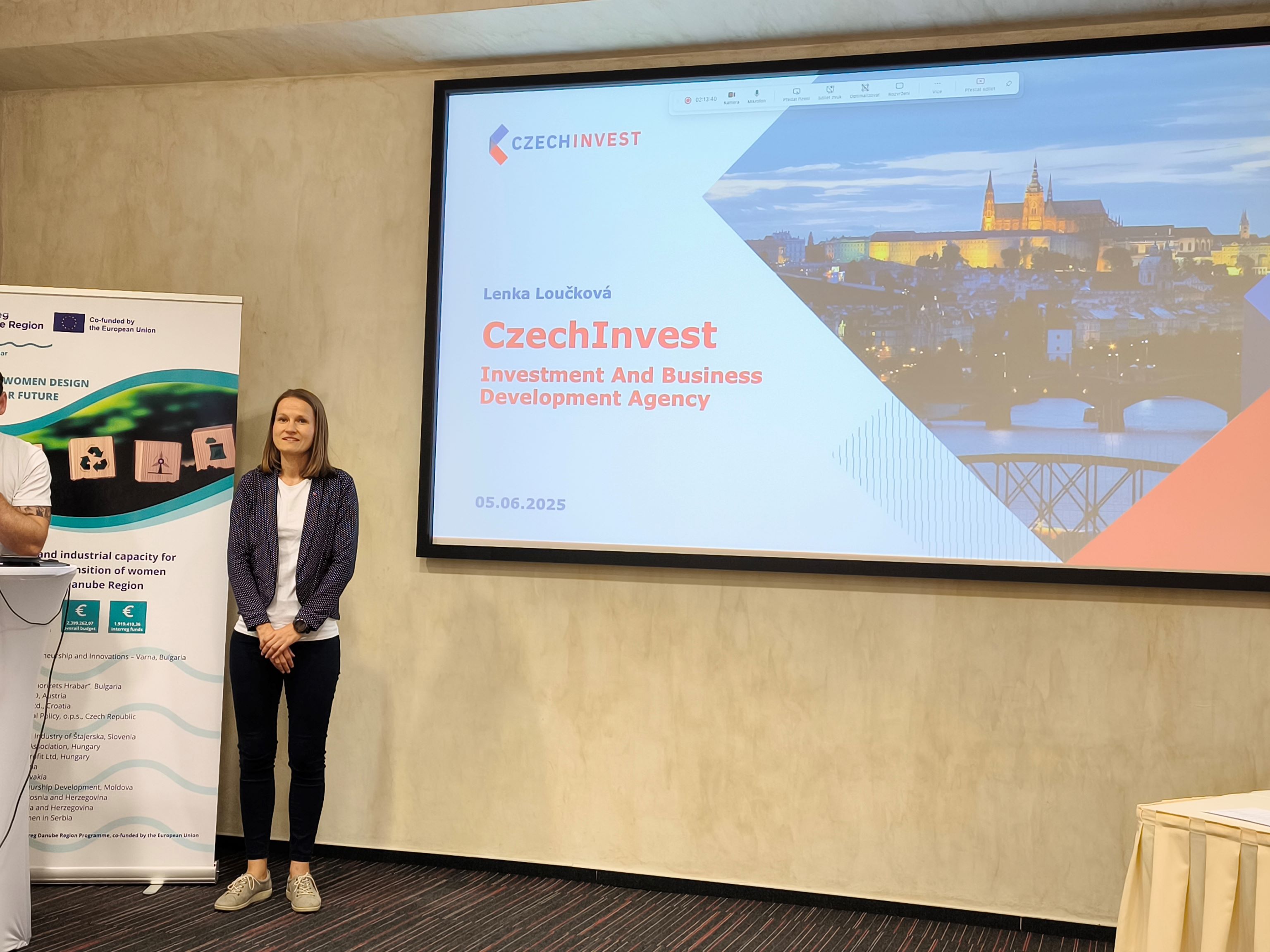
In the afternoon, the Transnational Stakeholder Group Meeting brought partners and stakeholders together to discuss strategic project elements and assess key outcomes.
The session featured the evaluation of Good Practices, presented by CCIS, which summarised scoring results and key recommendations. TECHPARK introduced the draft structure and content of the upcoming Manual for Good Practices - a tool to support adaptation and replication of effective models across regional contexts. An interactive strategic discussion allowed stakeholders to refine priorities and ensure alignment with local realities.
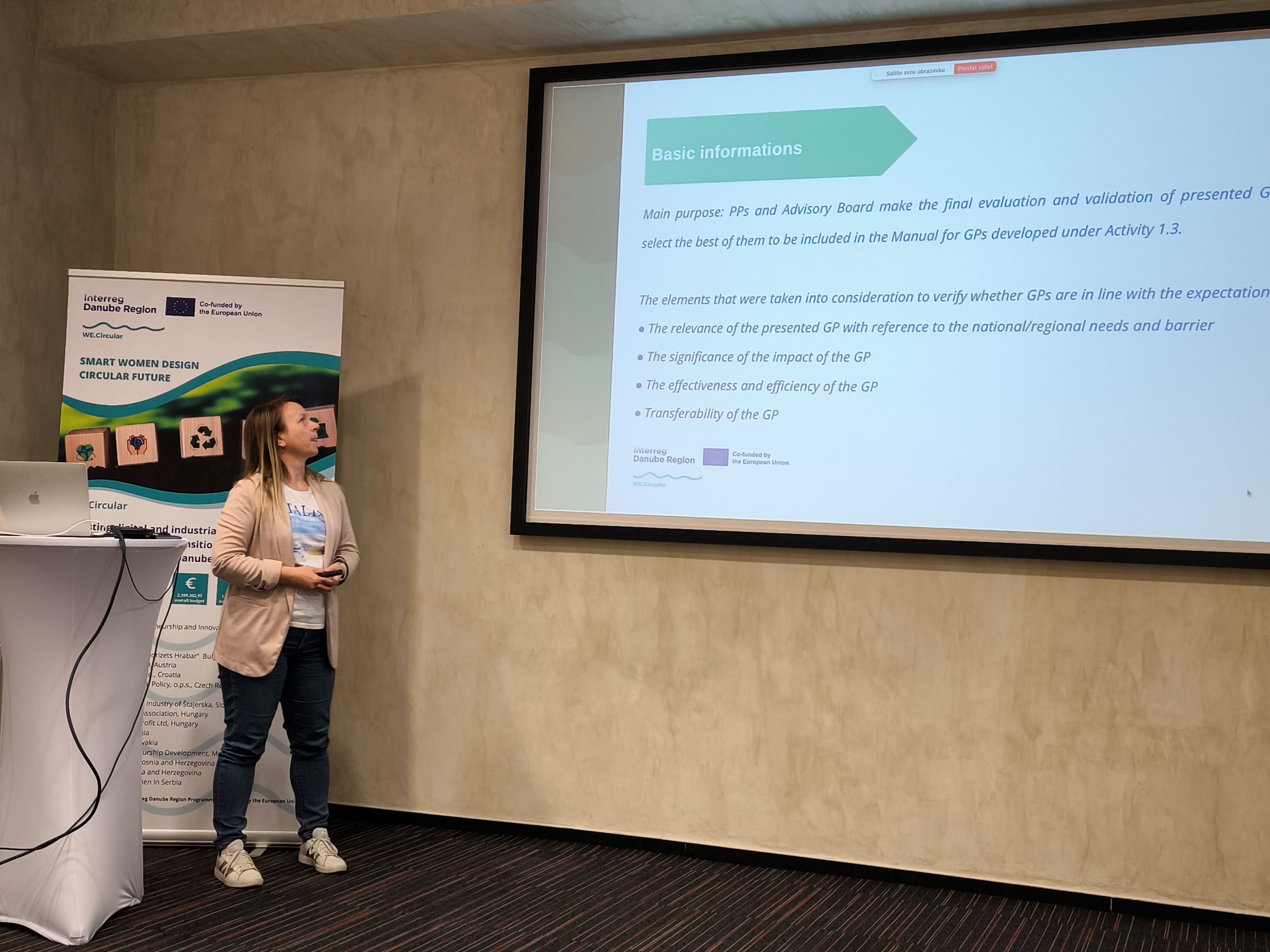
A major outcome of the meeting was the official approval of 15 Good Practices by the WE.Circular Advisory Board. These practices will serve as replicable models to guide circular and digital transformation across various regions and institutions and will form a central part of the project’s implementation toolkit.
In the late afternoon, the programme continued with the Co-Design Workshop, where participants engaged in hands-on, structured collaboration to develop and refine their Regional Action Plans (RAPs). This workshop played a central role in supporting regions to define clear, actionable pathways toward circular and digital transition.
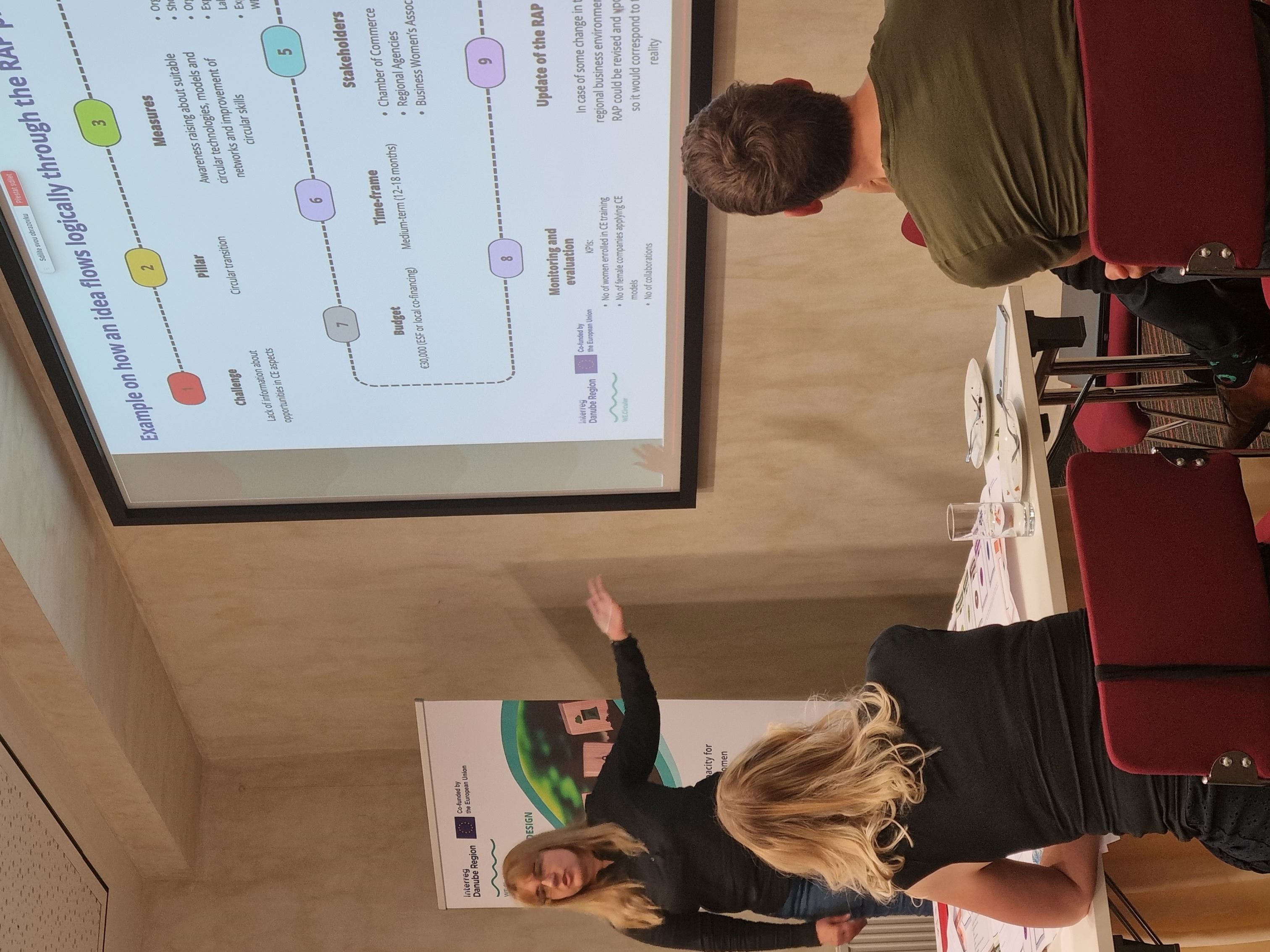
At the core of the workshop was the use of a specially developed serious board game, titled WE.Build: Action Plan Game, created by RAPIV. Tailored specifically for this occasion, the game provided a guided, step-by-step approach to the development of policy action plans. By simulating real-world decision-making and strategic planning challenges, it helped participants better understand how to translate complex ideas into structured, implementable strategies.
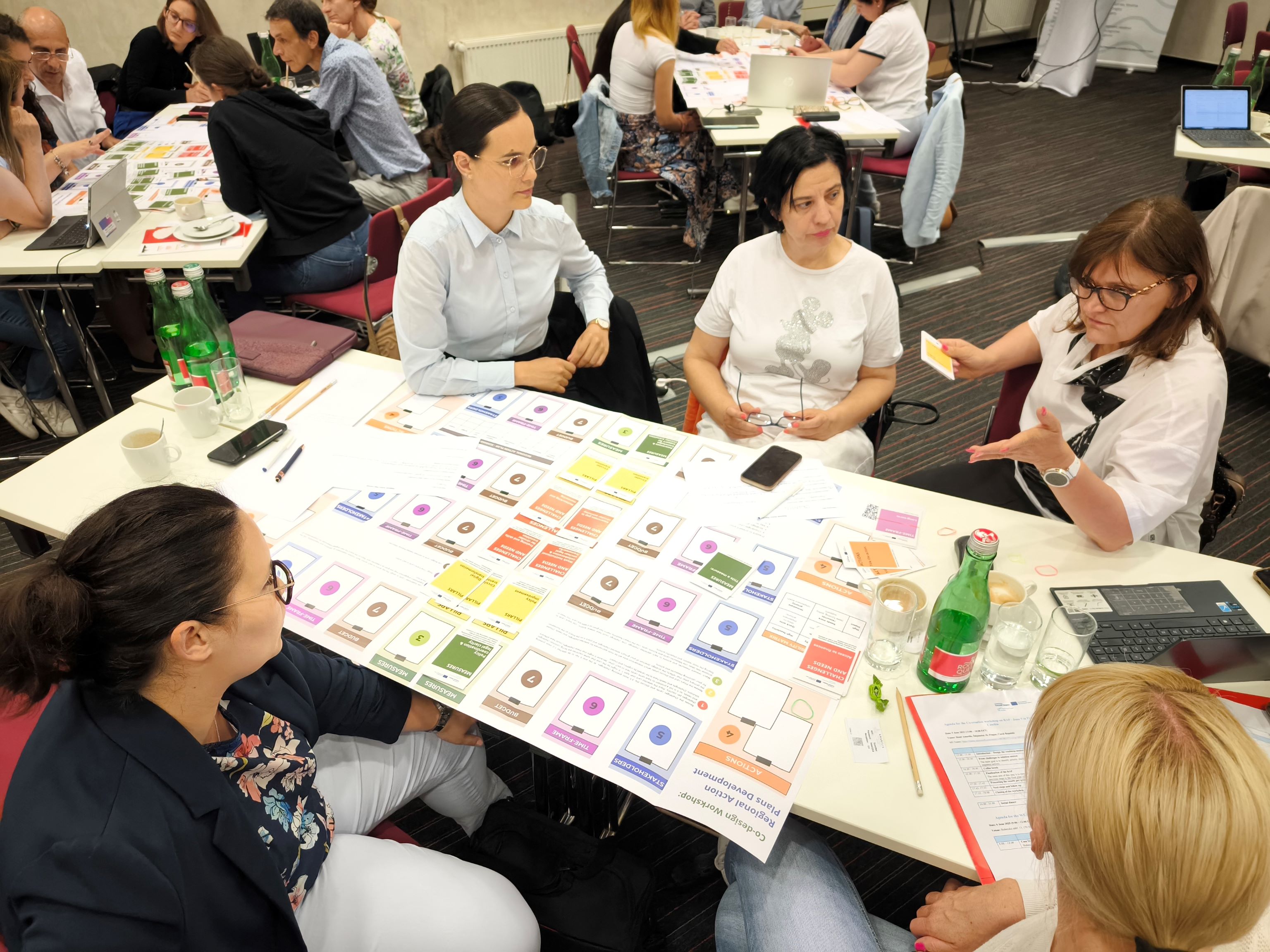
The feedback on the game was overwhelmingly positive. Although only a small number of participants (5 out of 40) reported prior experience with developing strategic documents, by the end of the workshop many expressed that the game significantly clarified the planning process for them. Representatives of partner institutions responsible for drafting the RAPs shared that the tool helped them visualise the logic and structure behind effective policy design. Members of the Advisory Board and associated strategic partners also noted the game’s added value, particularly in promoting cross-regional knowledge exchange and improving understanding of the relationships between key components in an action plan—such as objectives, actions, timelines, and responsible institutions.
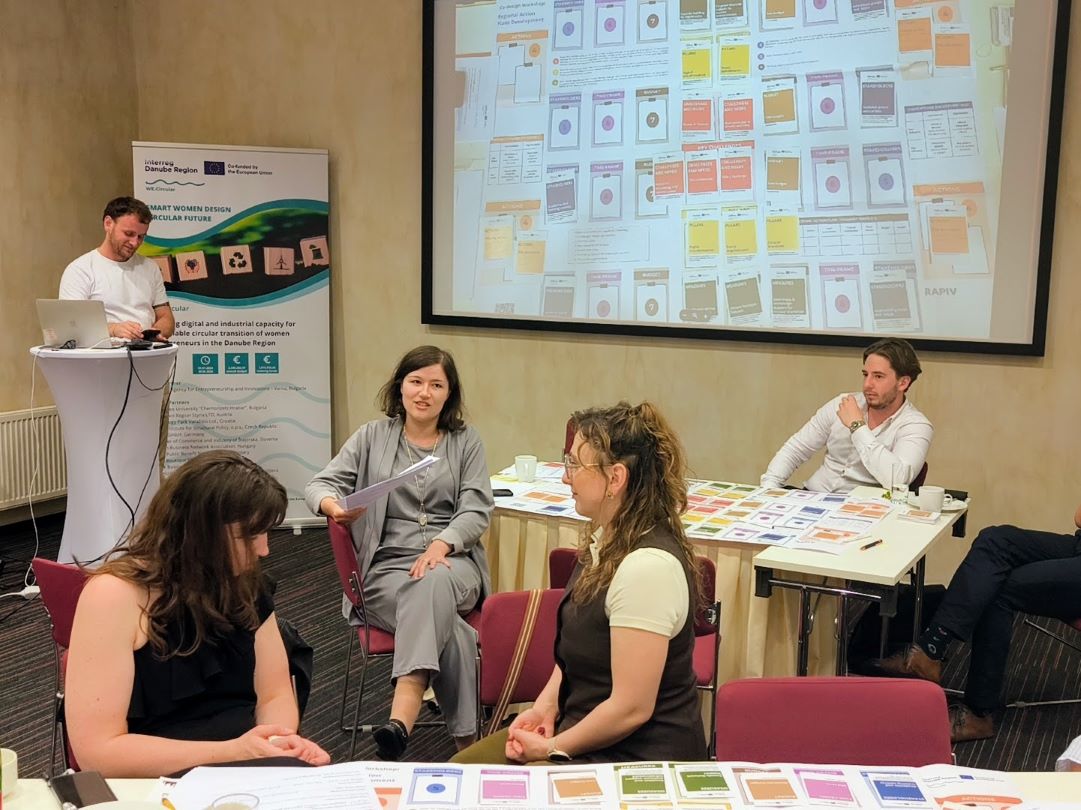
Due to the strong impact and interest generated by this approach, RAPIV has proposed the WE.Build: Action Plan Game as a strategic tool for use in another DRP-funded initiative—TEX-DAN, a project dedicated to the circular transition of the textile and fashion value chain. A series of stakeholder workshops are planned under TEX-DAN to support the development of a Joint Strategy and Action Plan, and the success of the WE.Circular workshop has already inspired this next step. The results and methodology of the Co-Design Workshop were presented during the TEX-DAN project partners’ meeting in Zagreb on 11 June 2025, where the game received significant attention and endorsement. As a result, RAPIV will adapt the tool specifically to support TEX-DAN’s strategic development process.
The Co-Design Workshop in Prague concluded with the finalisation of draft RAPs and a presentation of the developed concepts by each group. Participants also discussed the next steps for integration of the plans into their regional strategies. Beyond its immediate results, the workshop demonstrated the effectiveness of participatory, game-based approaches in policy planning and capacity-building, offering a scalable model for future projects across Europe.
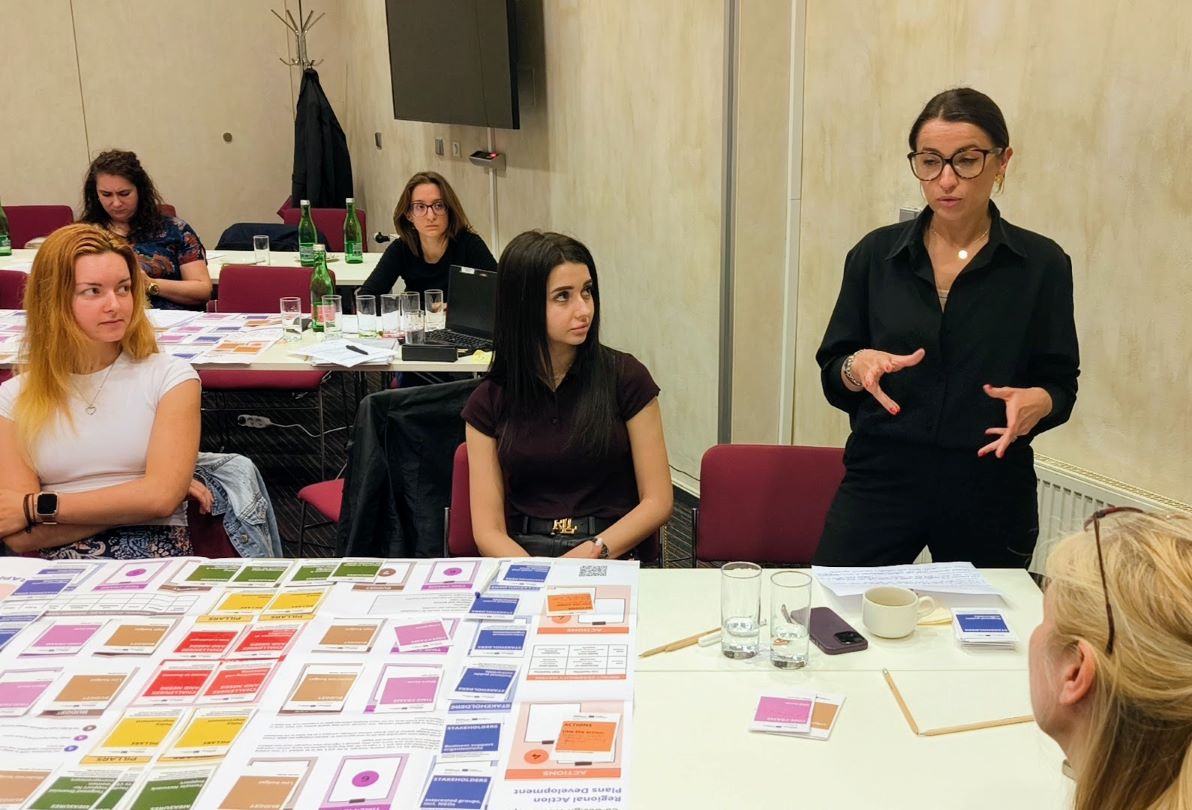
Day Two: Circular innovation in practice at Sto.re
On June 6, project partners visited Sto.re, one of the finalists in the WE.Circular Innovation Contest. Located in Prague’s Holešovice district, Sto.re is a living example of circularity in action, transforming discarded textiles into functional, creative products.
During the visit, participants took part in a hands-on workshop that included producing knitted flowers from textile scraps and observing the preparation process of materials from reused clothing. The visit also offered insight into Sto.re’s community-focused approach, demonstrating how circular principles can be combined with social engagement and local impact. This immersive experience provided participants with practical inspiration and reinforced the value of grassroots innovation in the circular economy.
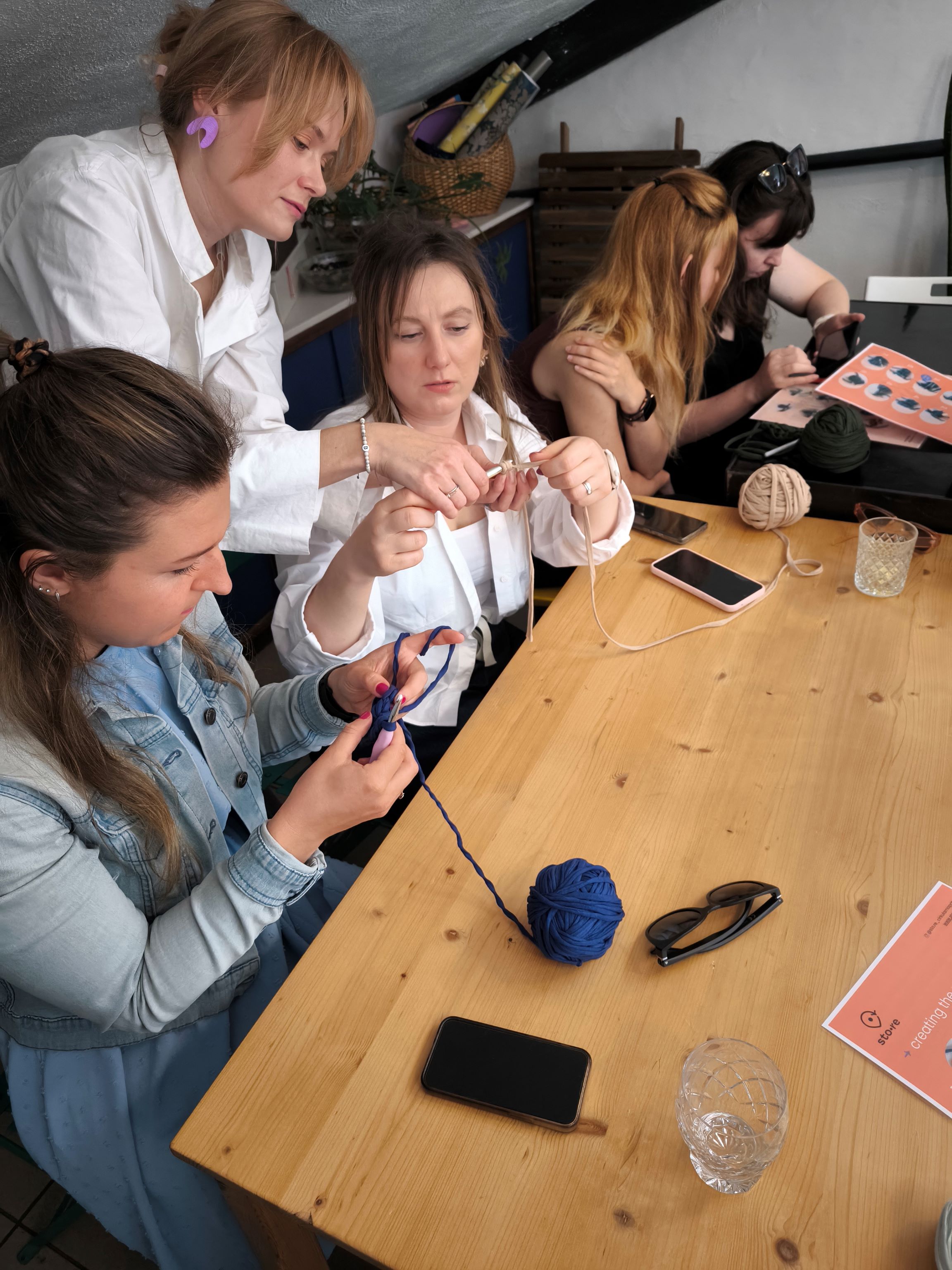
News & Events
Read the most recent updates and explore the upcoming events.

